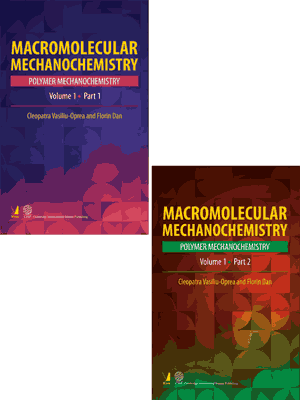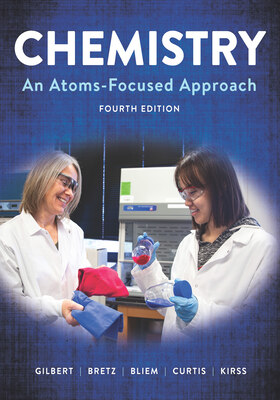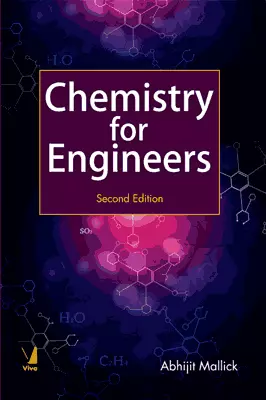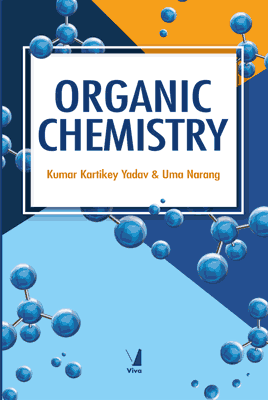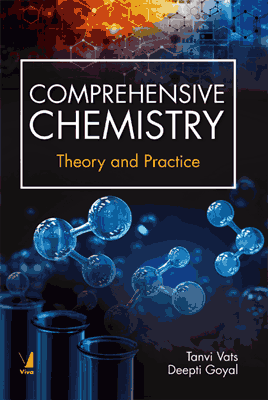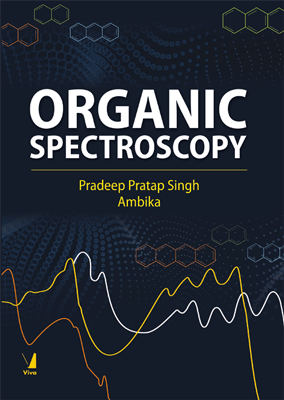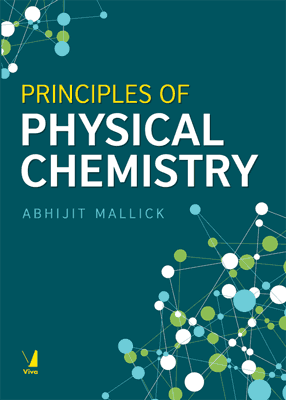Macromolecular Mechanochemistry, Volume 1 (Part I & Part II)
Macromolecular Mechanochemistry, Volume 1 (Part I & Part II)
Polymer Mechanochemistry
₹3,595.50 ₹3,995.00 Save: ₹399.50 (10%)
Go to cartISBN: 9789386105387
Bind: Hardbound
Year: 2017
Pages: 960
Size: 153 x 229 mm
Publisher: Cambridge International Science Publishing
Published in India by: Viva Books
Exclusive Distributors: Viva Books
Sales Territory: India, Nepal, Pakistan, Bangladesh, Sri Lanka
Description:
This two-volume set is an extremely detailed account of all aspects of macromolecular mechanochemistry and will be of great interest to all experts in this area of rapidly advancing mechanochemistry. Mechanochemical transformations are the subject of increasing attention in solid-state chemistry, physics and materials science, as well as in the development of advanced technologies. They have been discussed at a number of symposia on mechanochemistry and mechanical alloying in various countries.
Target Audience:
This book will be of great interest to all experts in the area of Macromolecular Mechanochemistry.
Contents:
PART 1
Preface
Introduction
CHAPTER 1: CHAIN MULTISTAGE MECHANISM OF THE MECHANOCHEMICAL PROCESS • Bibliography Part 1
CHAPTER 2: MECHANOCHEMISTRY OF POLYMER DEFORMATION • On the local character of polymer deformation • Basis of the theory of local character of deformation • The local character of polymer fracture • Deformation and fracture - interconnected processes • Mechanochemical mechanism of polymer deformation • Kinetic aspects • Kinetics of the mechanochemical reactions in constant mechanical fields • Mechanochemistry of polymer deformation under creep conditions • Chemical stress relaxation • Mechanocracking of the chemical bonds from the main chain • Mechanism of mechanocracking of chemical bonds from the main chain • Mechanocracking of cross-bridges (transversal bonds) • Interchange reactions • Multiple mechanocracking of polymer networks [201,202] • Scission of the cross-bridges and along the main chains • Reticulation reactions • Applications of chemorheology • Control of thermal stability of polyolefin-type hydrocarbonate networks • Characterisation of some thermosetting networks for varnishes and adhesives • Characterisation of some thermosetting resins • Some aspects of the chemorheology of linear amorphous polymers • Bibliography Part 2
CHAPTER 3: MECHANOCHEMISTRY OF POLYMER FRACTURE • Theories concerning polymer fracture • Basis of the theory of the local character of deformation • Griffith's theory • Kinetic theories of fracture • Generalised theory of polymer fracture. Andrews's theory • Chemical bond strength • Mechanochemical mechanism of fracture • Irreversible conversion of mechanical energy into chemical energy (The nonequilibrium process) • Nature of the primary active centers of mechanochemical reactions • Chained mechanism of macromolecular chain splitting • Initiation • Propagation • Interruption. Stabilization of destruction active fragments • Types of homolytical mechanodegradation mechanism of some usual polymers • Heterolytical mechanism • Kinetics • Factors that influence the mechanodegradation process • Structural factors • Macromolecular chain characteristics • Characteristics of supramolecular-morphological structure • Temperature • Reaction medium • Inert media • Radical acceptors • Organic liquids compatible with the stressed polymer • Mechanical regime • Modification of the structure-properties relationship by polymer degradation and fracture • Modification of the relation between molecular structure and physico-chemical properties of polymers • Modification of the polydispersity?properties relationship • Modification of the relation supramolecular-morphological structure • properties • Physical phenomena that accompany polymer mechanodegradation and fracture • Mechanochemical reactions at fracture surfaces • Mechanochemical synthesis • Mechanochemical polymerisation • Mechanochemical polymerisation of crystalline monomers • Mechanochemical polymerisation initiated by crystalline inorganic compounds • Initiation of mechanochemical polymerisation and copolymeris-ation in the absence of mechanoinitiators • Mechanochemical block copolymerisation and grafting • Mechanochemical polycondensation • Factors that affect mechanochemical polycondensation • Considerations of the mechanism of mechanochemical polycondensation • Mechanochemical complexation • Mechanochemical reactions on the surface of polyfunctional acceptors • Bibliography Part 3
Index
PART 2
Mechanochemical Reactions during Polymer Processing • Mechanochemical Reactions of Solid State Polymer Processing • Mechanochemical Reactions of Solid State Semicrystalline Polymers Processing • Mechanochemical Reactions of Solid State Amorphous Polymers under Tg • Mechanochemistry of highly elastic state polymers processing • Mechanochemistry of the polymers processing in the fluid-viscous state • The supramolecular structure and peculiarities of polymers processing in fluid viscous state • Mechanochemical reactions during polymer processing by two roll-mixing • Mechanochemical transformations during polymer processing by extrusion and spinning • The influence of some factors on mechanochemical transformation • Correlation between the factors which affect mechanochemical transformations • Mechano-chemistry of polymer processing in solution • Mechano-chemical reactions during spinning of polymer solutions • Factors of influence • Chemical modifications • Mechano?chemical reactions during polymers exploitation • Polymers fracture by fatigue • Polymers fatigue by solicitation in variable field of forces • Polymer fracture by wearing MECHANO-CHEMICAL REACTIONS OF POLYMERS IN DILUTED SOLUTIONS • Molecular asymmetry - the main reason of polymers mechanodegradation in diluted solutions • Hydrodynamic degradation by shearing through capillaries of polymer diluted solutions • Mechano-chemical degradation of polymer solutions by high speed stirring • Mechano-chemical degradation of polymer solutions by laminar flow between concentric cylinders • Shear by turbulent flow through pipes Drag reduction • Mechano-chemical destruction under ultrasound action • The mechanism of physical and chemical action of ultrasound waves • Classification of the reactions occurring in ultrasonic field • Chemo-acoustical degradation of polymers in solution • Kinetic aspects • Aspects of the sono-chemical degradation mechanism • Factors of influence • Mechano-chemical reaction during the cryolitic cycle freezing ?thawing • Behaviour of the linear polymers as solutions during the cryolitic cycle • Behaviour of polymer networks during the cryolitic cycle • The mechanism of cryolitic destruction • Mechano-chemical reactions of composite materials with polymer matrix • Elastomer reinforcement • Mechano-chemical reactions during vulcanisation • Mechano-chemical reactions during elastomer regeneration • Reinforcement of the thermoplastic polymers and thermoreactive oligomers • The role of the adhesive contact • The role of filling agents • The bonds at matrix-filler interface and mechanical models of load transfer • Fracture of composite materials • The static fracture of the composite materials with thermoplastic matrix reinforced with short fibres • Static fracture of the composite materials with thermoplastic matrix and unidirectional reinforced with short fibres • Static fracture of the composite materials with thermoplastic matrix and multidirectional reinforced with short fibres • Dynamic fracture (by fatigue) of the composite materials with thermoplastic matrix and reinforced with short fibres • The application of fracture mechanics to the composite materials
CHAPTER 4: CHEMOMECHANICAL SYSTEMS FOR ENERGY CONVERSION • BIO-MECHANO-CHEMICAL PROCESSES • Muscle contraction • Non-muscular contractile systems • Contractile mechano-chemical systems of equilibrium • MECHANO-CHEMICAL PROCESSES OF ENERGY CONVERSION BASED ON ARTIFICIAL SYSTEMS • Mechanochemical systems based on the change of ionisation state of the system • Mechanochemical systems based on redox reactions • Mechanochemical systems based on steric photo-isomerization • Mechanochemical systems based on phase transition • Mechanochemical systems based on polymer association • Electro-activated mechanochemical systems • APPLICATIONS INTELLIGENT POLYMERS • Applications of stimuli-responsive soluble polymers • Applications of stimuli-sensitive polymers deposed on solid surfaces • Applications of stimuli-responsive hydrogels
References
Index
About the Authors:
Cleopatra VASILIU-OPREA held the post of Professor of Monomer and Polymer Technology and Polymer Mechanochemistry at the Gh. Asachi Technical University, Iasi, Romania. She received a chemical engineer degree at the Polytechnical Institute of Iasi, Romania, and PhD degree from the Techniche Hochschule f??r Chemie, Merseburg, Germany. Prof. Vasiliu-Oprea is PhD supervisor in the fields of Polymer Chemistry and Technology and Material Science.
During 45 years of scientific activity she published over 450 professional papers and holds more than 40 patents, with special emphasis on polymer degradation and mechanochemical synthesis, mechanochemistry of polymer and composites fracture and deformation. She is the author or coauthor of over 20 monographs, books, and book chapters, including Mechanochemistry of Macromolecular Compounds; Polymers. Theory and Applications; Polymers. Structure and Properties; Polymers Fracture. Theory and Applications; Mechanochemical Polycondensation and Polycomplexation in Polymer Kinetics and Technology, Mechanochemistry of Polymer Deformation and Fracture Process in Elastomer Technology Handbook, Monomer and Polymer Technology. She is a member of the Romanian Society of Polymer Science, the Romanian Society of Chemistry and Chemical Engineering, Romanian Society of Inventors, and of the International Federations of Inventors Associations, IFIIA-WIN, Geneva. For her scientific activity Prof. Vasiliu-Oprea received several awards, as follows: Gh. Spacu Prize of Romanian Academy, 1981 (for research in the field of Polymer Mechanochemistry), title of Evidenced Professor of the Romanian Education Minister, 1984, Elite Inventor award of Romanian Society of Inventors, 1991, 1992, 1994, Henry Coanda gold and silver medals of Romanian Society of Inventors, gold medals and diplomas from the EUREKA-Brusseles, 1994?1996. In 2003, she has been honored with Opera Omnia prize and medal for excellence in scientific research by Romanian Minister of Education and Research.
Florin DAN is a lecturer of Monomer and Polymer Technology and Polymer Processing at the Gh. Asachi Technical University, Iasi, Romania. Prior to this post he served as a chemical engineer in the rubber and plastic processing industry, UAMT-Oradea, Romania. He received his B.Sc. and Ph.D (supervisor C. Vasiliu-Oprea) degrees from the Gh. Asachi Technical University. He then spent a year as a Postgraduate Fellow in Polymer Science at the Institute of Macromolecular Chemistry of Prague, Czech Republic, with J. Stehlicek. This fellowship was followed by a year and a half as Postdoctorate Fellow at the TotalFinaElf and a year and a half as an associate researcher at the National Research Council of France at the Blaise Pascal University of Clermont-Ferrand, France, with J.P. Grolier. His research interests focus on anionic polymerization of lactams in organic media, electroactivated stimuli responsive polymer gels, combined techniques for on-line monitoring of chemical processes, with an emphasis on the use of reaction calorimetry. Dan has authored more than 30 research papers, two invited book chapters, and holds one patent.
